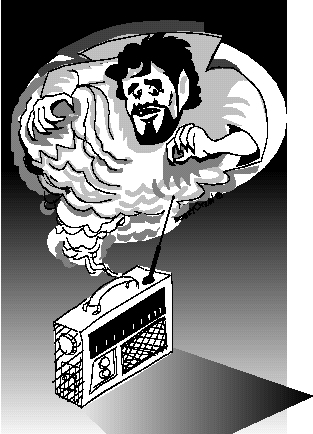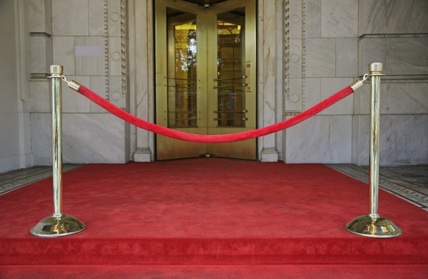
This is the most popular thing I’ve ever written. Reprinting it is this blog’s New Year tradition.
Hope you enjoy it — complete with the original illustrations by Bobby Ocean.
A Reader Asks:
“Following your advice, we’ve looked for and actually hired part-timers from several unusual places. (One was a waiter our GM had while trying to pitch a potential client, another a door-to-door salesman who came into the station lobby.) But when they get on the air, they seem to clam up and become much more boring than they were before we hired them. When training ‘newly discovered’ part-timers, what are the most important things to start with?”
My Reply:
TELL THEM STORIES…
…about how & why you got into radio, who influenced you, your best radio moments, what you still hope to achieve.
War stories about broadcasting despite impossible conditions, accidentally locking yourself out of the studio, on-air flubs.
Stories about personal connections that have been made with listeners: The girl who called to request her late grandmother’s favorite song…The fan who sent you chocolate chip cookies on your birthday…The listener who berated you for mispronouncing the name of his favorite artist.
 Stories about transistor radios under the bed covers and at the beach. Endless struggles to control the car radio buttons.
Stories about transistor radios under the bed covers and at the beach. Endless struggles to control the car radio buttons.
“Would you PLEASE turn that down”
and
“Wait, I want to hear this!”
Novelty records and girl groups and Motown and Stax and Cadence and Elvis from the waist up and hearing “I Want To Hold Your Hand” for the very first time.
Stories about lovesick teenagers dedicating songs back & forth to each other. About children turning on the radio before they’re even awake, feverishly hoping to hear those magic words from their local disc jockey: “No school, snow day….”
About loneliness and a solitary voice reaching out to you. About making a complete stranger laugh or reflect or remember. About baseball games from far away on car radios. About someone driving across town or across country, with only you and your radio brethren for company.
Stories about Larry Lujack and John Records Landecker and Robert W. and Wolfman Jack and Gary Owens and Dr. Don and Kenny Everett (ask someone from the UK about Kenny) and those crazy young jocks who brought American-style radio to Europe in the 1960s by taking to the seas in honest-to-God pirate radio ships (imagine broadcasting under the worst possible conditions; now imagine doing it while seasick).
Stories about bad news and everyone immediately turning on the radio. About sad news and where you were when you heard it. About practical jokes and misunderstandings and mild or wild revenge.
About getting fired, packing up the U-Haul, and being scared all over again.
Getting angry, getting older and “the good old days.”
Static-y voices criss-crossing in the night. Fifteen-hour air shifts, flaky jocks, disappearing engineers.
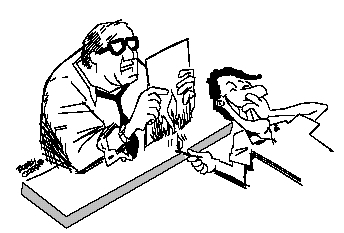
Stories about legendary radio people you almost met in an elevator at a convention. The major market PD who did you a favor; the request line caller you can’t forget. Practical jokes on the news guy, disappearing stationery, and a bedroom full of promo records that one day will be worth something.
Staying up late talking radio, swapping tapes, “borrowing” ideas, “embellishing” your ratings, deepening your voice, losing your voice, losing your place, losing your keys, losing your cool.
Wire service copy paper, 15-inch reels, pin-controlled automation. Caffeine addictions and junk food and whatever the station could trade for. Old friends, borrowed headphones, uncontrollable sleep-deprived laughter.
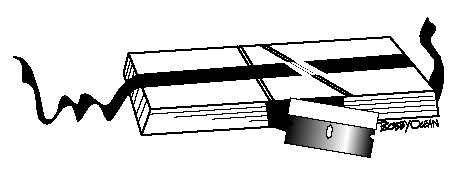 Razor blades, splicing tape, grease pencils. Draping the tape edit over your shoulders until it was safe to throw away.
Razor blades, splicing tape, grease pencils. Draping the tape edit over your shoulders until it was safe to throw away.
Cue tones, cue sheets, in cue, out of breath.
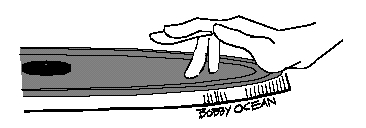 Slip-cueing, back-announcing, and hitting the post.
Slip-cueing, back-announcing, and hitting the post.
Egos, rivals, and friendships.
Imagination, excitement, Orson Welles and Jack Benny and Ma Perkins and Franklin D. Roosevelt and Arthur Godfrey and Don McNeil’s Breakfast Club.
Losing jobs, gaining weight, changing names.
“How do they do that?”
and
“Listen to this!”
Storz, McClendon, Drake…and Chuck Blore’s Color Radio. Play-by-play and blow-by-blow; sports scores and election returns and Number One on the charts this week.
7-7-7, First Ticket, Hooper, Pulse.
“You don’t look anything like you sound!”
“What am I doing with my life?”
and
7-day workweeks
and
“I can’t believe I get paid for this!”
Slow starting turntables, nickel on the tone-arm, the cart machine sticks.
Stories about hotlines, hot shots, skimmers, phantom cume, time checks, time warping, ratings, feelings, winning, showing off. T-shirts and coffee mugs and iridescent frisbees.
Billboard and Claude Hall and Cashbox and Record World and R&R and Bill Gavin’s green pages.
Floods and tornado watches and power outages and school lunch menus. Lost dogs, lost accounts, lost tempers.
Jiving, shouting, rhyming, whispering. Hiccup remedies, lemon ‘n’ honey, and good old-fashioned adrenalin to save the day.
Embarrassed, elated, delighted. Hi-Low, Name It And Claim It, and Dollar-A-Holler. Playlists and station surveys and Good Guys. Q, Zoo, and Boss. Bob & Ray and Mike & Elaine and The Monitor Beacon.
Jingles, stickers, Chickenman and The Oidar Wavelength.
Silly stunts, intense rivalries…Passion.
B-Sides and label colors and songwriter credits. Favorite songs, favorite artists, favorite moments.
Newspaper wars, live remotes, and meter readings. Shouts, stingers, sweepers, stagers, stabs.
Make-goods, live tags, rip ’n’ read and backtiming to the news. Allan Freed and Dan Ingram and Cousin Brucie.
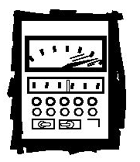
Beat the Bomb and Lucky Bucks and Battle of the Bands. Pinning the needle, pegging the meter, riding gain.
Feedback and wrapping the capstan and “Hold on a sec, I gotta go on the air…”
Sign on, sign off, warming up the filament and Compression, Compression, Compression!
Gates board with rotary pots; Automax and Volumemax. Intros, outros, ramps, talk-ups. False endings and records popping & skipping and carts jamming.
Philosophical Differences and late night resume photocopy sessions. Tight board, good pipes, will relocate.
The big break, bad luck, skip waves, skipping town with the air staff’s paychecks.
Cueing past the splice, heavy phones, cue burn. Solid Gold, Hot Nine at Nine, Hot 100. WABC and KHJ and KLIF and WOWO and WLS and making it to the big markets.
Friday night countdowns, Saturday Swap Shops, Sunday drag racing commercials, twin spins, doubleplays, triple shots and instant replays.
Romantic entanglements, broken hearts, big dreams, small wins, and “Garbage Mouth Leaves Cleveland.”
“NO ONE is to touch these carts! And that means YOU!”
“Were you listening when…?”
and
“What’d ya think?”
and
“You should have been there.”
Then explain to that new jock:
Now you are there.
What are you gonna do with it?
November 1996 (continued):
After after my radio talent seminar in Vienna, The next day was devoted solely to travel. There are no direct flights between Vienna and Helsinki, so I flew first to Copenhagen and then caught another flight to Finland.
I was met at the airport by Agneta Mallén, who drove me to my hotel.
During check-in, the front desk clerk started to give me electrical adaptor that, apparently, they had been told I had to have. It was obvious that someone from my host, YLE, had made a big deal about this, due to the problems I had experienced there during my previous visit.
Suddenly the desk clerk looked at me again and asked, “Were you here about six months ago?”
She still remembered the American who had all that trouble connecting his computer all those months ago.
The next day was a fairly typical workday for me. I conducted Building A Winning Morning Show for YLE in morning and How To Motivate & Critique Air Talent in the afternoon.
As soon as we finished, I immediately climbed into a taxi to the airport, flew to London, checked into a hotel just outside Heathrow airport, and went to sleep. The following day I checked out, went back to the airport, and flew back home to Los Angeles.
A Loyal Reader Writes:
“I have been in radio for 15 years and I currently have a successful small-market morning show (Country music format). We have huge 12+ numbers and have been #1 in our market for six years.
“I have always been taught that the on-air topics a music intensive station should avoid are Sex, Politics and Religion. Any truth to that?
“Well, one day coming out of a Randy Travis tune, I expressed my spiritual belief in Christianity! Big mistake! Or was it…?
“We have a monthly feature on our show that includes a local psychic who comes on and we open up the phone lines for listeners to have a short moment free of charge to ask a question. They have a great time and our phones go nuts! This woman is right on about many folks, I might add….
“My dilemma: Because we have her on the show, a few listeners have called and e-mailed to question my true Christian beliefs.
“My partner and I have worked hard to develop our characters and choose material that does not go against who our characters are. And we have worked hard to have lots of variety in what we do on the air.
“Do we dump the psychic? When or how do we know what the feel of the market is?
“If lots of listeners felt that way, our phones would not ring, right?
“Do I need to address this on the air?”
——
“I have always been taught that the on-air topics a music intensive station should avoid are Sex, Politics and Religion. Any truth to that?”
Certainly the last two are true for most secular, music intensive formats.
Look at it this way:
100% of your listeners like country music. That’s the common bond among all of your listeners.
You present the music they’re so fond of, so you’ve got a good chance of bonding with them.
As soon as you declare a religious preference, you’re bound to push away some of your listeners:
If you declare yourself a Christian/Jew/Muslim/Hindu/Bahai, etc. (in a context where that wouldn’t usually be relevant), some of your listeners will apply to you some of the stereotypes that your religion has acquired.
In a country that is bitterly divided along political lines, declaring your political preference when it’s not relevant (e.g., presenting music on a music intensive station) automatically erects a barrier between you and some of the people who don’t share your political views.
I have very strong views on both religion and politics. But you’d have a tough time identifying them from this blog, because I go out of my way to avoid revealing them.
Why?
Because I’m timid? If you’ve heard me speak or read my newsletters or my books or this blog, you probably don’t think I’m generally reluctant to give my opinion.
Because I’m willing to sacrifice my beliefs for business reasons — i.e., to sell as many books as I can or garner the most readers?
Nope. My blog and newsletters (which are free), books, CDs and seminars all are very opinionated. And every time I express a strong opinion, I know that someone out there will disagree.
But I restrict those strong opinions to topics related to radio, because the people who read the blog, books or newsletters; listen to the CDs; or attend the seminars do so in the knowledge that they will be based upon my personal views of how to do radio most effectively.
Here’s why I don’t talk about politics or religion in such a forum:
My goal — my job — is to educate.
Occasionally in live seminar settings, an attendee will say something during the seminar that tempts me to “correct” his/her views regarding religion, politics, or social issues. But to do so would lessen my effectiveness in communicating the concepts I’m there to teach.
I have an obligation to those attendees — even those attendees whose religious or political views I find abhorrent. If I do something that I know will weaken the effectiveness of my communication, I am cheating my audience.
“I expressed my spiritual belief in Christianity! Big mistake! Or was it?…”
Personally, I think it’s a mistake….Unless your partner has differing spiritual beliefs and aired those differences.
And I write those words in the absolute knowledge that by publishing this on my blog, I might upset a few (not all) evangelical Christians. Sorry; I’m giving my opinion about the best ways to maximize your connection to your listeners, not about religion.
“a local psychic who comes on and we open up the phone lines for listeners to have a short moment free of charge to ask a question. They have a great time and our phone go nuts! This woman is right on about many folks, I might add…”
FIRST: I feel a moral obligation to point out that although they can be entertaining, all psychics are frauds. Some have fooled themselves into believing they have psychic powers; most simply are con artists.
I know my saying that will immediately inflame some readers. Uri Geller became wealthy fooling people into believing he could bend metal with his mind. John Edwards cons millions into thinking he can receive communications from the dead. They’re both professional liars.
I’m an amateur mentalist. If you offer to pay my regular hourly consulting rate, instead of advising you on radio strategies I’ll be happy to give you a “cold reading” that will astound you.
Some readers have seen me do a rather astonishing “mind reading” demonstration at my live “Hypnotic Advertising” seminar. How do I do it? I can’t reveal that. But I won’t claim to be a psychic.
SECOND: Why do I risk boldly declaring that there are no real psychics, knowing that some readers will take umbrage because they personally had a “psychic reading” that “described me exactly” and “contained personal details that no one else could have known”?
Because although those readers will “know” I’m “wrong” about psychics, they probably won’t think any less of me as a radio “expert.” It’s not such an emotional issue that it will poison their reactions to my views on radio.
In fact, I’ll bet that right now someone is reading this issue and thinking, “He’s wrong about psychics, but he’s right about the foolishness of needlessly alienating a large block of your listeners.” That person will dismiss my views on psychics but continue to listen to what I have to say about radio.
The only “flaming” I might see in response to this posting is from “psychics” who somehow stumble onto this blog. They are not my constituency, and their flaming me will be their only encounter with me or this blog.
THIRD: This is a very common fallacy among radio people: “The phone lines lit up, so my audience loves this topic/guest!”
Let’s see. You’ve got, let’s say, 250,000 people in your listening area. And all five of your phone lines are lit. So does that mean the guest psychic is attracting a huge audience?
No. It means the psychic is attracting five callers.
Facts of Radio Life
1. The air conditioning in the studio often is out of order. But the air conditioning in the boss’s office always works.
2. There always is a struggle to avoid being stuck with the “bad headphones.”
3. Putting a psychic on the air guarantees the phone lines will light up.
What about the people who aren’t calling? Are they entertained, captivated or enthralled?
Maybe.
“If lots of listeners felt that way, our phones would not ring, right?”
Wrong. Having lots of offended listeners wouldn’t prevent people who enjoy it from calling. As long as you manage to delight five listeners enough that they call, your phone lines will be lit.
“Do we dump the Psychic?”
You now know my feelings about psychics — my absolute certainty that they’re charlatans.
Personally, I think it’s wrong to put them on the air unless you make clear that it’s purely for entertainment value and that you do not encourage your listeners to believe they really have psychic powers.
I’m sure you don’t present the “psychic” with skepticism, and I’m sure she does tell the audience she really does have “extra-sensory” abilities.
So do I think you should dump the psychic?
From my ethical perspective, absolutely. Because I hate to see people duped like that.
From my professional radio perspective? No. Not if you believe it’s a worthwhile feature that your audience enjoys.
You’re saying that some of your fellow Christians are giving you a hard time because you’re putting the psychic on the air. The few listeners who are challenging the integrity of your religious beliefs are doing so only because you made the mistake of making an issue of your religion during your show.
“Do I need to address this on the air”
If you’re looking to stimulate a spirited on-air debate, yes.
But my sense is you do a light, non-polarizing, music-oriented morning show. If so, don’t mention it on-air.
For the few people who e-mail you to question your true religious beliefs, here are three possible replies you might try:
“Thanks for sharing your feelings with me. I’m sure that as a Christian you have my best interests at heart.”
“Thanks for sharing your thoughts with me. I promise I’ll give them the consideration they deserve.”
“I checked with God, and He told me to tell you to mind your own business.”
(Oops. I just offended another reader. Sorry.)

Which would you rather do to acquire new clients?
A) Prospect, cold call, etc.
B) Have them contact you, already predisposed to advertising with you.
No sane human would possibly select “A” over “B.”
But how do you get business owners with whom you’ve had no previous contact to call you?
By way of referral.
Business owners and entrepreneurs have friends who also are business owners and entrepreneurs. They talk to each other. When they find a good supplier, vendor or professional resource, they recommend it to others.
Recently a friend called to ask my advice. He was looking for a local hotel at which to hold a professional event. Knowing that I’ve produced quite a few such events over the years, he thought I might have some suggestions.
I recommended a hotel I’ve used several times — a Doubletree Hotel in Los Angeles. I gave him the name of their sales manager and told him to tell her I suggested that he call.
This was not a big event. I doubt it would have meant more than a few hundred dollars to the hotel.
But a week later, I received a package from the hotel’s sales manager: a gift tin of the Doubletree’s famous chocolate chip cookies, along with a “thank you” note for referring my friend.
Three points to consider:
1. My friend had not yet become one of their customers. The thank-you gift was sent simply for my referring a potential customer, not necessarily for helping them make a sale.
2. Do you have a system in place that automatically kicks in whenever one of your clients recommends you? If not….Why not?
3. You do not have to wait for a referral to come floating into your office. As a matter of habit, you should ask every satisfied client for referrals.
The Wrong Way: “Say, uh, do you know anybody else who might want to advertise with us?”
The Right Way: “John, please do me a big favor and write down the names and phone numbers of three people you know who also could use my help in growing their businesses.”
But….
“I could never do that,” you say. “That would seem so…pushy.”
No, it wouldn’t. Not if you make that request of a satisfied client.
Think about your own experiences:
When you discover something that adds to your life or to your business success, don’t you readily recommend it to friends? How about when you discover a great new restaurant, or a website you love, or a movie that enthralled you?
If you’re like most people, you regularly and cheerfully give unsolicited referrals to all sorts of people and businesses.
Yes, at first you will be uncomfortable asking for referrals. No, the satisfied client will not mind being asked and, in fact, might be flattered.
Note the wording of my suggested request:
“Write down the names and phone numbers of three people….”
If you ask for “some” or “any,” you might get one. If you ask for three, you’ll probably get three.
Cool Intro: When the client gives you three names, you say: “I promise I’ll call each of them right away.”
Let’s say the client’s name is Stan Ameche. And Stan has suggested that you call Steve Arbuckle.
Guess how you begin your “cold call” (which no longer is cold; it’s been warmed up for you)? You begin by saying:
“Steve? My name is Ed Salesperson, and I promised Stan Ameche I’d give you a call today….”
And how do you get past the gatekeeper?
YOU: “Ed Salesperson for Steve Arbuckle, please.”
GATEKEEPER: “May I ask what this is regarding?”
YOU: “Just tell Steve that Stan Ameche wanted me to call him today….”
Or, of course, you can go back to cold-calling businesses out of the Yellow Pages. It’s your choice.
